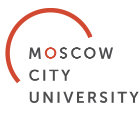Introduction to Moscow City Teachers' Training University
Moscow City Teachers' Training University is Russia's leading higher education institution for teachers and the second largest teacher training university in Russia. Its main task is to train teachers and it offers professional courses in various educational fields, including primary, middle and high schools.
Overview
Student size: The school currently has about 18,000 students, including 500 international students from more than 20 countries.
Faculty: There are more than 800 faculty and staff on campus, including 60 professors, 140 associate professors and 32 teaching assistants, with professors and associate professors accounting for more than 80%.
History and establishment time
The school was established in 1995 and its history can be traced back to 1872. It was decided by the Moscow government and was created on the basis of several departments of the Faculty of Humanities of Moscow State University. In 1997, the Samara branch of Moscow State Normal University was established; in 2006, the School of Foreign Languages was opened; in 2010, the School of Humanities was established; in 2014, the School of Culture and Art was established.
School Strength
Teaching Achievements: The school offers more than 350 educational programs, from undergraduate to graduate, to vocational education, covering education, management, art, law and other fields, and has trained a large number of outstanding education professionals, whose academic qualifications are certified by the Ministry of Education of China.
Scientific Research Strength: The school has multiple laboratories covering educational law, educational psychology, project management and other fields, and has also cooperated with 500
International cooperation: The school has close cooperation with many universities in China and Russia, and is a member of the China-Russia Education University Alliance. It has also established a wide range of exchange and cooperation mechanisms with universities in the United States, the United Kingdom, Germany and other countries, and has carried out various forms of cooperation such as student exchange programs, teacher visiting programs, and scientific research cooperation.
Institutional nature
Public university.
Educational philosophy
Committed to providing students with modern education, focusing on cultivating educators who adapt to the needs of contemporary cities, adhering to the concept of promoting global academic exchanges and improving students' cross-cultural capabilities, actively promoting international cooperation and exchanges, and further expanding its international influence by establishing cooperative relationships with universities, enterprises and institutions around the world.
Key laboratories and disciplines
Key laboratories: The school has laboratories in the fields of education law, educational psychology, project management, etc.
Key disciplines: Education, psychology, linguistics, music, fine arts and sports are the school's advantageous majors, especially in the fields of education and psychology, with strong academic advantages.
Department
The school has 16 There are 10 departments, including the Institute of Mathematics and Informatics, the Institute of Natural Sciences, the Samara Campus, the Department of Arts, the Department of Economics, the Department of Law, the Department of Music, the Department of Special Education, the Department of Technology and Design, the School of Foreign Languages, the Institute of Humanities, the School of Educational Management Talent Training, the School of Education and Psychology, the School of Psychological Sociology and Social Relations, the Russian Capital Institute of Educational Research, and the School of Physical Education.
Ranking
Ranked 46th among comprehensive universities in Russia, top 3 among normal universities, and around 1200 in the QS World University Rankings.
Expenses
Tuition fees: Undergraduate tuition fees are about 250,000 rubles/year, master's tuition fees are about 300,000 rubles/year, and doctoral tuition fees are about 350,000 rubles/year.
Accommodation fees: The school provides dormitories for students, which are equipped with complete living facilities and cost about US$200-300/month.
Campus
Teaching facilities: There are teaching buildings, libraries and other teaching facilities on campus. The school's library has more than 1 million books.
Living facilities: The school has created a good living environment for students, dormitories There is a dormitory supervisor on duty 24 hours a day, equipped with automatic and voice fire alarms and video surveillance systems to ensure student safety. There are also study rooms, entertainment rooms, laundry rooms with automatic washing machines, drying and ironing rooms, gyms, etc., and Wi-Fi is free.
-

Peter the Great St.Petersburg Polytechnic University
-
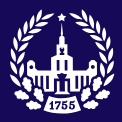
Moscow State University M. V. Lomonosov
-
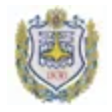
Bauman Moscow State Technical University
-
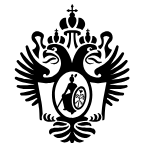
St. Petersburg State University
-
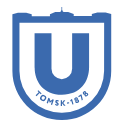
Tomsk State University
-
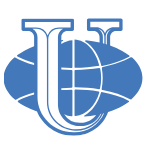
Peoples' Friendship University of Russia
-
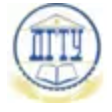
Don State Technical University
-
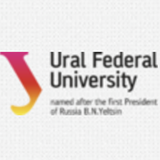
Ural Federal University
-

Moscow Institute of Physics and Technology
-
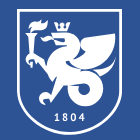
Kazan Federal University
-

Mesoamerican University
-

Istmo University
-

Mariano Galvez University of Guatemala
-

Regional University of Guatemala
-

Galileo University
-

Francisco Marroquín University
-

Rafael Landívar University
-

University of the Valley of Guatemala
-

University of San Carlos of Guatemala
-

Technological Institute of Tlaxcala Plateau
-

Golfo University
-

Technological University of South Sonora
-

Technological University of Huejotzingo
-

Tizimín Institute of Technology
-

Chilpancingo Institute of Technology

